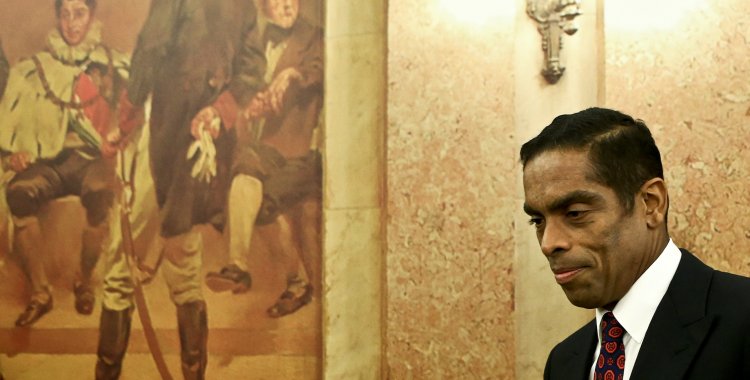According to a statement from the Organized Crime and Corruption Reporting Project (OCCRP), available on the organization's website, one that is part of the team that investigated the Panama Papers and Suisse Secrets 'dossiers', "Álvaro Sobrinho , who led an Angolan bank that collapsed with billions of dollars in unexplained debt, is linked to a scheme to embezzle hundreds of millions of dollars from a government-backed social housing project," in 2009.
At issue is the bank's participation in a financing for the construction of a social housing that ended up never happening, and that researchers say involves the embezzlement of 750 million euros, initially approved for the project that never happened.
"Documents reviewed by reporters indicate that the money, which was intended for the builder, went to Banco Espírito Santo Angola, owned by Álvaro Sobrinho, but were never sent to the company", reads the published text, in which it is added that "about the same time the social project financing scheme was attempted, Sobrinho created accounts at Credit Suisse worth at least 78 million Swiss francs, over 72 million dollars at the time", or 65.5 millions of euros.
In the document, the OCCRP says that "Nephew denied stealing any funds and says that funding for the project has been canceled and that no loans have been disbursed."
Among the critics of this project are the former leader of the National Agency for Private Investment Aguinaldo Jaime and the president of Jeosat Angola, the company that would build the houses.
In a letter cited by the OCCRP, Jaime shows "legitimate concern" about the way BESA handled the money for the project and criticizes BESA's attempt to introduce a third party into the deal, "inappropriately".
Jeosat chairman Carlos Rodrigues says he has lodged a complaint with US and European authorities, alleging that "BESA's leaders tried to convince him to create an offshore company in the British Virgin Islands to receive the money for the construction of the project".
Initially, Rodrigues says he trusted Sobrinho when he told him that it was better to use financial structures in offshores, but later states, quoted by the OCCRP, that "they stopped communicating with him, took over the offshore, stole his identity and used it to create other shell companies and bank accounts, draining the 750 million euros of the credit line".
In Carlos Rodrigues' opinion, this project never went ahead due to BESA's deliberate efforts to undermine its access to financing: "They used the entire credit line and made me owe a debt that I didn't even know existed" , he told OCCRP investigators.







